First Pollen of 2022 reported in Seacoast, NHOn February 23, 2022, the temperatures in the Seacoast area of New Hampshire reached well above 60 degrees and our bees, in various apiaries, were flying and bringing in some heavy pollen loads. The Little Harbor apiary in Portsmouth showed two different types of pollen coming in that couldn't be identified (we let the bees keep this important resource at this time of season) but looked to be either willow, maple, and/or crocus. The Little Boar's Head apiary in North Hampton, had a great amount of pollen coming in and this pollen looked to be Witch Hazel that is blossoming in the area around the apiary. Some people will say this isn't a normal occurrence but it is something we have seen in past years and it is normal for Witch Hazel to bloom in the late wintertime period. Why is Pollen Needed?Pollen is critical to the beehive because it provides a critical protein resource for the colony. Pollen was last collected by the hive in the Fall and unlike honey, it has a shelf life. While some of the pollen collected late in the Fall can still be viable there isn't as much left in many of the hives or it may have spoiled. So a fresh source is a welcome site for the hive and beekeeper alike. We typically provide pollen patties at this time of the season to help kick start the hives protein supply. What happens from Here?As the season continues and temperatures return to normal levels the bees will hunker down again and use their resources to continue with brood development. As things get warmer, more and more plants will start to produce pollen and soon some will have some early nectar flows. Beekeepers and pollinators are eagerly awaiting these days.
0 Comments
We are offering limited hive sponsorships (adopt a hive) for 2022. This is a great way for your corporation to keep bees and pollinators without putting a hive in the office or corporate location. We can do that as well if you have a large enough corporate campus but most companies are located in high traffic areas where other companies are located. Our hive sponsorship is as follows:
Our Hive Sponsorship Includes the following: - All the hive equipment and honey bees that will make up your hive - Your selection of the apiary where your hive will be located - A video update of your hive - Your company logo placed on the hive - A 1 hour live overview of the hive via video conference or live demonstration - A portion of the honey produced in your hive, bottled with your company logo 2022 Pricing - Please click here and send us an email to learn more. Recently, we had a request to place an educational hive at a school we have provided pollination presentations to in the past. The Little Harbour Elementary School is located in Portsmouth, NH and borders Little Harbor here on the New Hampshire Seacoast. The group at the school wanted a hive on site to help with their STEM education program. After meeting with the team at the school we decided to place an existing hive along the shoreline that borders the school.
The hive location required us transporting the full hive from another site, across a field, down some stairs on a dock and along some wet marsh. The move was performed during the weekend when no teachers or faculty would be around. The bees took to the location very well and were able to work a large area of golden rod and aster that surround the harbor. Since this post, we have had over 5 presentations from grades 1-5 where we used the bees from this hive to help educate the students. We look forward to working with LHS and our other schools in the coming year. It was a pleasure hosting our friends from Whole Foods Market and the Portsmouth Herald. We provided a tour of the SeaBee Honey House and one of our apiaries in Rye, NH. We also made the front page of the paper. Thanks everyone!
@wholefoods @seabeehoney @portsmouthherald Prior to the opening of the Portsmouth Whole Foods Store - Food Industry Network interviewed Holly Long from Whole Foods and she discussed why they selected SeaBee Honey for their store.
Hyper Local is when we have honey close to the retailer. As many of you know we spread our hives around the Seacoast of New Hampshire and beyond. Each hive's honey is processed individually and traceable back to the hive. Whole Foods is aligned with this our approach and is one of the reasons we decided to partner with them in their new Portsmouth store. Does Whole Foods currently have a presence in the Portsmouth area? Curious as to how you approach the forager process when Whole Foods is opening a new store. How do you find and foster new brands in each market? We currently have two existing stores in New Hampshire as well as a store in Portland, Maine, that is not too far away from Portsmouth, but this is our first store on the seacoast of New Hampshire. For new stores, we typically try to forage for items from the immediate local area, but we also look to highlight existing local suppliers that we already have amazing relationships with. For our Portsmouth store, we’ve done just that. We have some hyperlocal honey from a new supplier, SeaBee Honey.... The rest of the interview can be viewed with the link below. https://foodindustrynetwork.com/a-whole-foods-forager-provides-sneak-peek-of-new-portsmouth-store/ For years, we at SeaBee honey, have worked with our local schools providing free pollination overviews and observation hive visits. In 2020, we helped the folks at the Dondero School in Portsmouth with writing a grant to receive a new bee hive and equipment used to manage the hive. While they provided the equipment, in this case a top bar hive, we provided the honey bees at no cost. We also provided pollinator overviews with the 3rd graders at Dondero that ranged from Pollination 101 to Products of the Hive. With the support of Portsmouth Superintendent, Dondero's Principal and Mrs. McCain we were able to set up a space on the campus that could safely house the hive. Finally, after a one year delay due to Covid-19 we were finally able to hive bees in the top bar hive. In the attached video you will see Mrs. McCain shake out 3lbs of bees into the top bar hive. Great job Mrs. McCain and all the teachers, faculty and students at Dondero! Seabee Honey Saves a Hive of Bees Located in the Side of a HouseWe received a call earlier in the month asking us if we could help remove a hive of bees located in the side of a house in Hampton, NH. Knowing we were dealing with an established colony it wasn't going to be an easy job getting them out.
The bees were located above the second story of the home and they had set up a hive in the soffits. After locating the entrance we needed to remove some of the trim of this very old house. We removed the trim very carefully and smoked the bees to keep them docile. This hive had a very nice temperament even though we had broken into their home. Once we accessed the hive we found these beautiful round wax combs that were likely only a month or so old. The space was long but not tall so the small round combs had the look of Ross Rounds. I was able to remove the queen and get the bees into a nuc box. The bees were then carefully brought to the base of the house where the nuc was to sit for a day so we could collect the bees that were out foraging. After a day we were able to swing by the house and grab the nuc. From there we moved the bees to an apiary in Hampton Falls that was over 3 miles away. The hive was a late-season swarm and did not have the bees to make it through the winter. This hive will probably be combined with a stronger hive in the fall. Feel free to call us ff you have a swarm or a colony of bees living in your house. We will do everything in our power to try to help any pollinators that may be living in your home and help relocate them to a farm or apiary where they can help our local farmers. For the last couple of years, we have been working with the Rye Conservation Corp and Rockingham County Conservation District to provide pollination education to the community and area schools. Recently, we had students from the Rye Junior High come down to tour the farm, harvest pumpkins they planted in the Spring, and tour the apiary.
We love working with the students and we bring out our charts and educational materials whenever we can to help demonstrate the importance of pollinators. One of the most effective learning aids is the observation hive that allows us to pull a frame of bees from an existing hive and place it in a protected plexiglass construct. This allows us to show the different types of bees, honey, brood, and pollen. Everyone loves to see the queen so we are always sure to have her in the observation hive. If we capture just the right bees at the right time we can demonstrate the bee dance used by foraging bees to communicate the location and type of pollen/honey they have found. While the queen is always a hit a dancing bee is one of the most amazing sites that we can show to a group of students. If you are interested in having a honey bee overview or visit to an apiary please reach out to us to learn how we can make it happen. |
Details
SEABEE HONEY BLOGAuthorA beekeeper in New Hampshire [email protected] Archives
December 2023
Categories
All
|
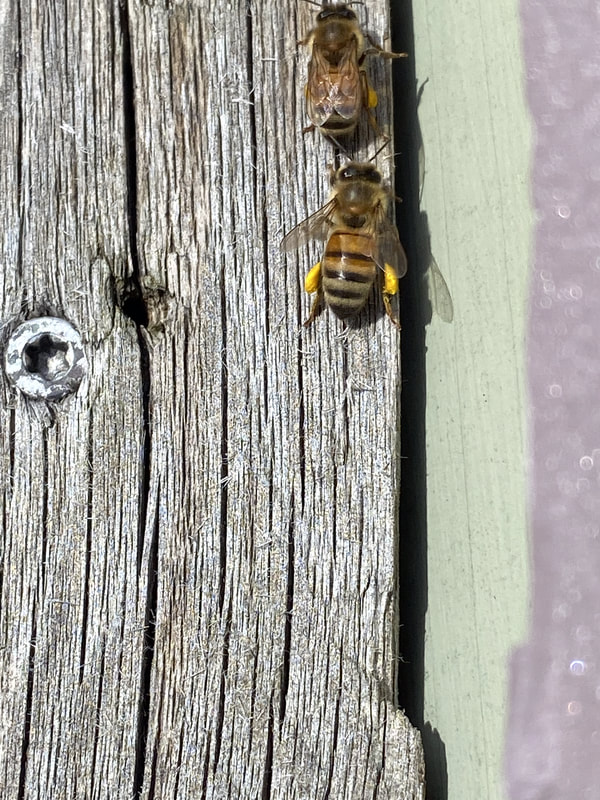
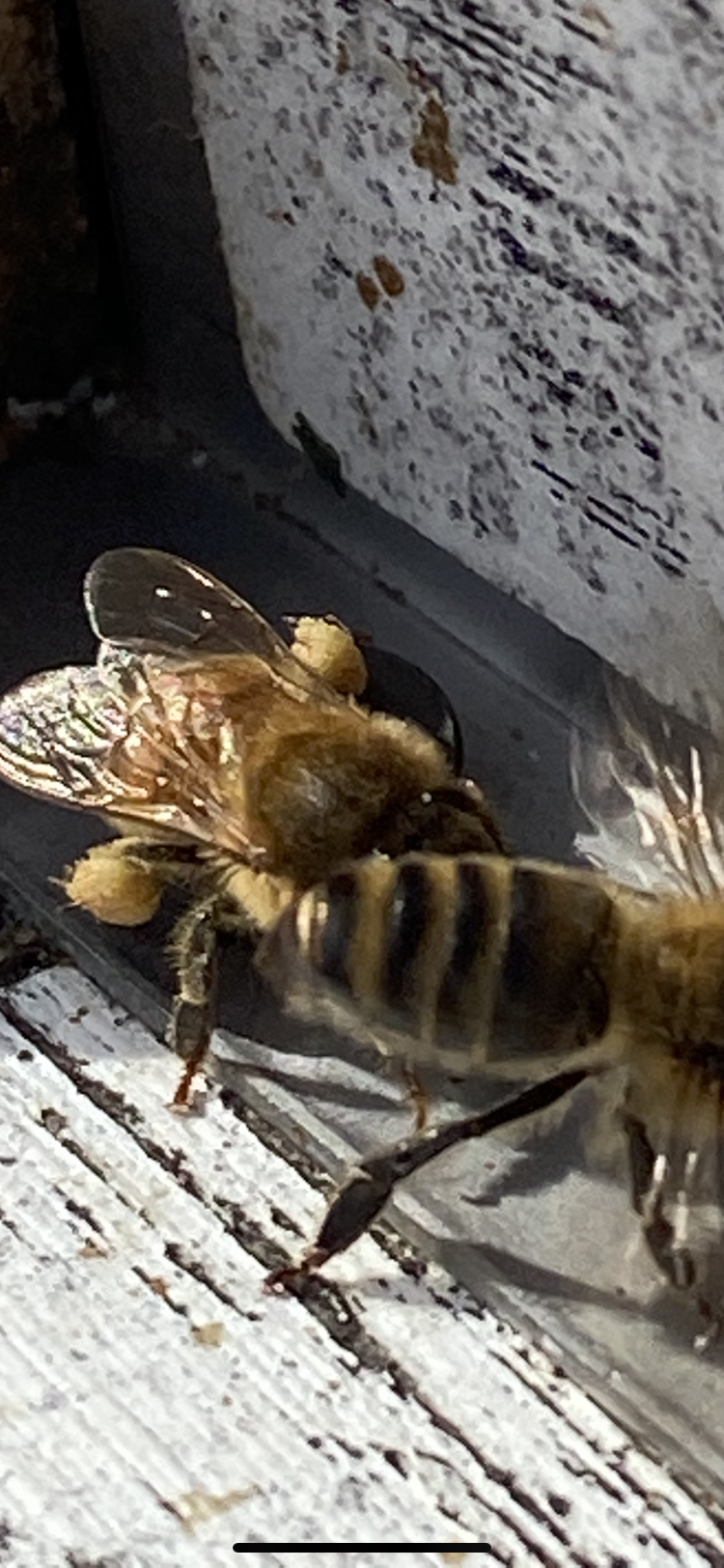
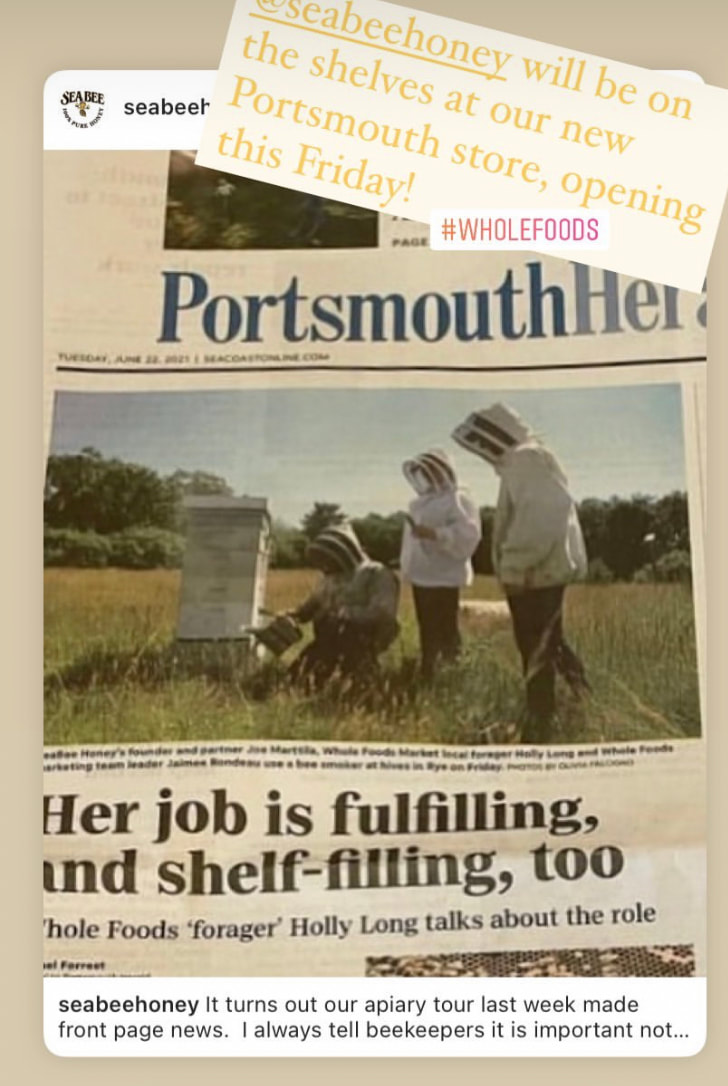
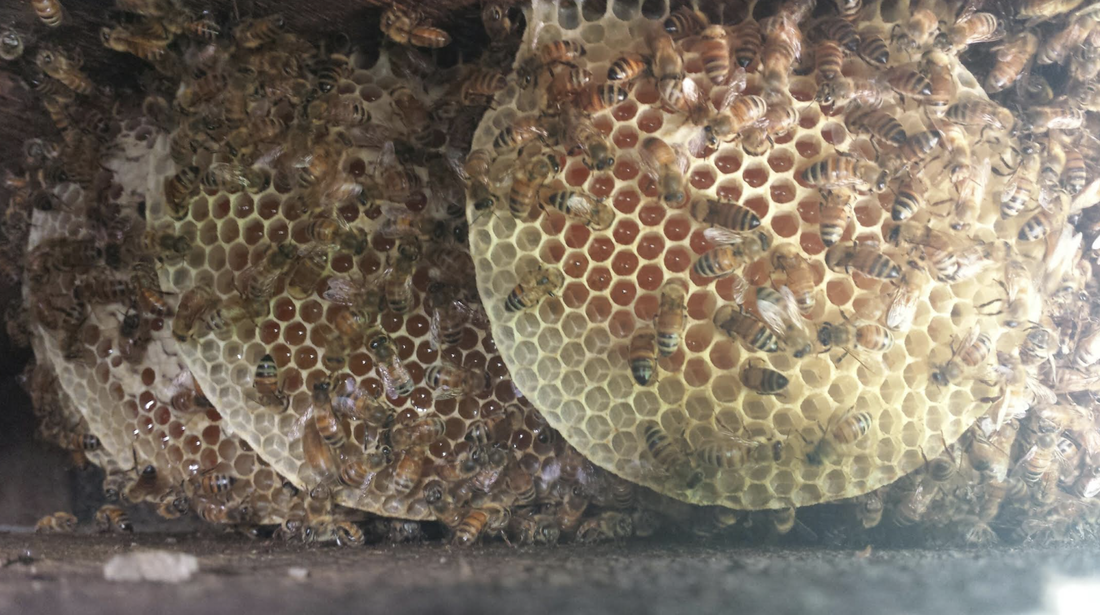
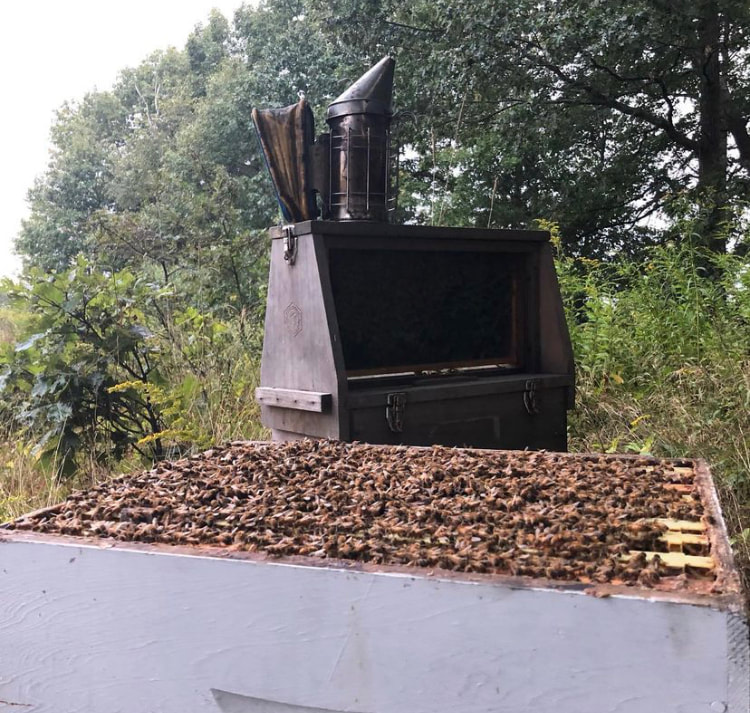

 RSS Feed
RSS Feed